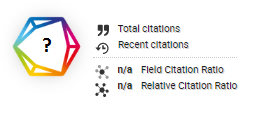The Influence of Service and Religiosity on Taxpayer Compliance with Tax Sanctions as a Moderating Variable in MSMEs in Singkawang City
DOI:
https://doi.org/10.46984/sebatik.v28i2.2487Keywords:
Tax Services, Religiosity, Tax Sanctions, Taxpayer Compliance, MSMEs, PLS-SEM.Abstract
This study aims to analyze the influence of tax services and religiosity on the tax compliance of MSMEs in Singkawang City, with tax sanctions as a moderating variable. Tax compliance is a critical concern for the government, particularly in increasing state revenue from taxes, especially from the MSME sector. This research adopts a quantitative approach using a survey method involving 96 MSME actors in Singkawang City who are registered as taxpayers. Data were analyzed using the Partial Least Squares-Structural Equation Modeling (PLS-SEM) method with SmartPLS. The findings reveal that tax services and religiosity have a significant positive effect on taxpayer compliance, indicating that high-quality tax services and strong religiosity can encourage greater compliance. Additionally, tax sanctions significantly impact compliance, showing that strict sanctions can enhance taxpayer adherence. However, tax sanctions do not moderate the relationship between tax services or religiosity and taxpayer compliance. This study concludes that to improve tax compliance among MSMEs, tax authorities should focus on enhancing service quality and reinforcing moral education through religiosity. Meanwhile, tax sanctions remain essential as a control mechanism, even though they do not consistently strengthen the relationship between services, religiosity, and compliance.
References
Ermawati, N. 2018. “Pengaruh Religiusitas, Kesadaran Wajib Pajak Dan Pengetahuan Perpajakan Terhadap Kepatuhan Wajib Pajak.” Jurnal Stie Semarang (Edisi Elektronik) 10(1):106–122.
Ermawati, S. 2018. Religiusitas Dan Kepatuhan Pajak: Pengaruh Nilai Agama Terhadap Kepatuhan Wajib Pajak. Surabaya: Universitas Airlangga Press.
Fitria, N. 2022. Pelayanan Pajak Dan Pengaruhnya Terhadap Kepatuhan Wajib Pajak: Studi Di UMKM. bandung: Penerbit Cendekia.
Ghozali, Imam. 2016. Aplikasi Analisis Multivariete Dengan Program IBM SPSS 23. 8th ed. Semarang: Badan Penerbit Universitas Diponegoro.
Heider, Fritz. 1958. ThePpsychology of Interpersonal Relations. New York: Wiley.
Irianingsih, Eka. 2015. “Pengaruh Kesadaran Wajib Pajak, Pelayanan Fiskus Dan Sanksi Administrasi Pajak Terhadap Kepatuhan Wajib Pajak Dalam Membayar Pajak Kendaraan Bermotor.” Universitas PGRI Yogyakarta.
J.H.Tene.; J.J.Sondakh.; J.D.L. Warongan. 2017. “Pengaruh Pemahaman Wajib Pajak, Kesadaran Pajak, Sanksi Perpajakan Dan Pelayanan Fiskus Terhadap Kepatuhan Wajib Pajak.” Jurnal Riset Ekonomi, Manajemen, Bisnis Dan Akuntansi 5(2):443 – 453.
Lestari, R. 2020. “Pengaruh Kualitas Pelayanan Pajak Terhadap Kepatuhan Wajib Pajak.” Jurnal Akuntansi & Perpajakan 5(1):123–40.
Maxuel, Afeni & Primastiwi, Anita. 2021. “Pengaruh Sosialisasi Perpajakan Dan Sanksi Perpajakan Terhadap Kepatuhan Wajib Pajak UMKM Ecommerce.” Jurnal Riset Manajemen Dan Bisnis (JRMB) 16(1).
Nurmantu, S. 2019. Pajak: Kebijakan, Kepatuhan, Dan Implementasi Sanksi Pajak. Yogyakarta: Gadjah Mada University Press.
Nurmantu, Safri. 2019. Pengantar Perpajakan Indonesia. Granit.
Nustini, Yuni & Afianto, F. Ahmad. 2017. “Determinan Kepatuhan Pembayaran Pajak Kendaraan Bermotor: Sanksi Pajak Sebagai Variabel Moderasi.” Simposium Nasional Akuntansi XX.
Parasuraman. 2018. The Behaviorial Consequenses of Service Quality. New Jersey: Prentince Hall.
Purwanto, R. 2023. Faktor-Faktor Yang Mempengaruhi Kepatuhan Pajak UMKM Di Indonesia. Jakarta: Gramedia.
Putri, O. Aidha; Suriyanti, L. Hetri; Putri, A. Agustina. 2022. “Pengaruh Religiusitas Dan Love of Money Terhadap Kepatuhan Wajib Pajak UMKM Dengan Sanksi Pajak Sebagai Variabel Moderasi.” Jurnal Wira Ekonomi 12(2).
Rahayu. 2020. Perpajakan Teori Dan Kasus. Jakarta: Salemba Empat.
Rahayu, S. 2023. Faktor Sosial Budaya Dan Religiusitas Dalam Kepatuhan Pajak. Jakarta: Penerbit Literasi Nusantara.
Rini. 2021. Perpajakan Dan Religiusitas: Perspektif Kepatuhan Wajib Pajak. Jakarta: Salemba Empat.
Setiawan & Dewi. 2022. “Moderasi Sanksi Pajak Dalam Hubungan Pelayanan Dan Religiusitas Terhadap Kepatuhan Wajib Pajak UMKM.”
Steers, R.M., & Porter, L. W. 1988. Motivation and Work Behavior. USA: Mc. Graw Hill Inc.
Sugiyono. 2018. Metode Penelitian Kuantitatif, Kualitatig, Dan R&D. Bandung: penerbit Alfabeta.
Suryani, M. 2018. “Pengaruh Religiusitas Terhadap Kepatuhan Pajak: Studi Empiris Pada UMKM Di Jawa Barat.” Jurnal Ekonomi Dan Bisnis Dharma Andalas 10(3):56–72.
Tania T. S. 2011. “Pengaruh Keadilan Sistem Perpajakan Dan Religiusitas Terhadap Niat Dan Ketidakpatuhan Wajib Pajak (Studi Pada Wajib Pajak Orang Pribadi Yang Terdaftardi Kantor Pelayanan Pajak Pratama Tampan, Kota Pekanbaru).” Universitas Riau.
Wahyudi, A. 2021. “Religiusitas Dan Kepatuhan Pajak: Studi Perilaku Wajib Pajak Di Indonesia.” Jurnal Perpajakan Indonesia 8(2):98–115.
Waluyo. 2021. Perpajakan Indonesia. Jakarta: Salemba Empat.
Yadinta, P, Suratno, S, & Mulyadi, J. M. V. 2018. “Kualitas Pelayanan Fiskus, Dimensi Keadilan, Kesadaran Wajib Pajak Dan Kepatuhan Wajib Pajak Orang Pribadi.” Jurnal Riset Akuntansi & Perpajakan (JRAP) 5(2):201–12.
Yanah. 2013. “The Impact of Administrative Sanction and Understanding of Income Tax Law on Corporate Taxpayer’s Compliance.” The International Journal of Social Sciences 12:55–75.
Downloads
Published
How to Cite
Issue
Section
License
Copyright (c) 2024 Nanang, Umiaty Hamzani, Nella Yantiana, Helisa Noviarty, Sari Rusmita

This work is licensed under a Creative Commons Attribution 4.0 International License.
Authors retain all their rights to the published works, such as (but not limited to) the following rights; Copyright and other proprietary rights relating to the article, such as patent rights, The right to use the substance of the article in own future works, including lectures and books, The right to reproduce the article for own purposes, The right to self-archive the article








